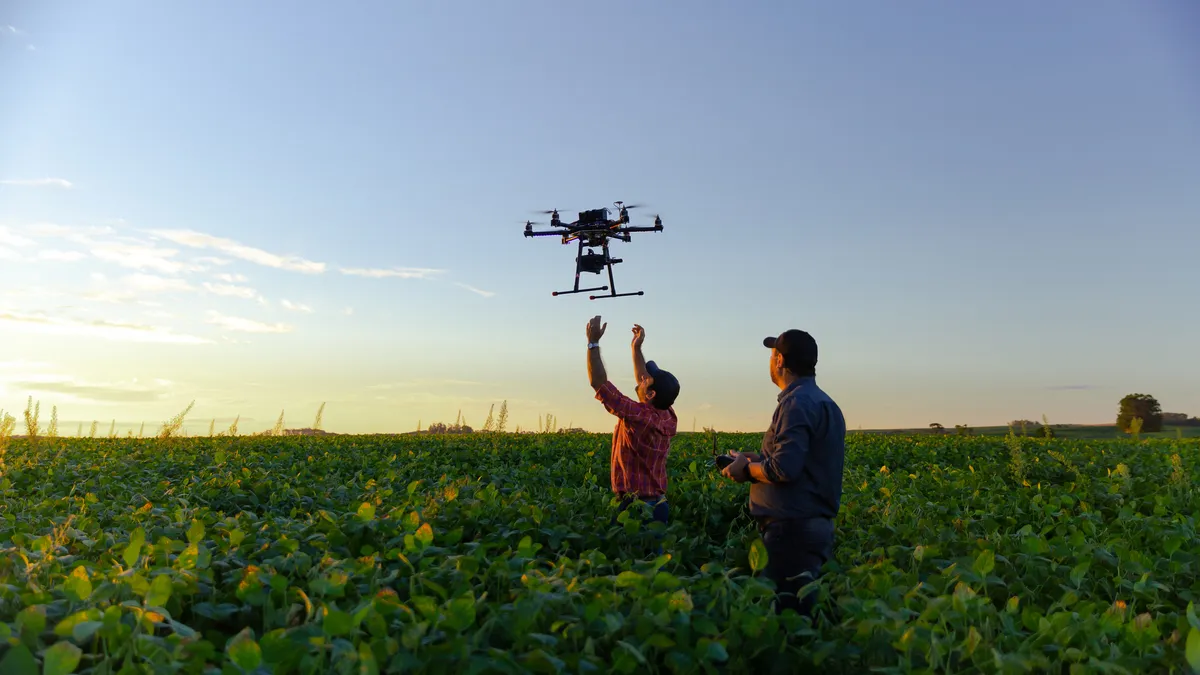Dive Brief:
- More farmers are looking to try new products and technologies that help increase crop yields and productivity as producers grapple with rising input costs and risks from climate change, a McKinsey & Company report says.
- A global survey of 4,400 farmers found that around half would be likely to try new yield-increasing products in the next two years, including 57% of respondents in North America.
- Around 35% of farmers surveyed also said they would be willing to try new crop protection products. Only 27% expressed interest in purchasing innovative equipment, products or technologies.
Dive Insight:
While farmers recognize the pros of using innovative products, many of those surveyed expressed reservations around cost of adoption and new technology's ability to help producers boost profits. According to McKinsey, nearly half of respondents in North America said they were “very concerned” about having a clearly demonstrated return on investment before investing in agtech.
The agtech industry may need to do more to tailor its solutions to different geographies and markets if it hopes to grow sales, McKinsey said.
For example, one-third of respondents in Europe said they lacked the operational scale to make full use of agtech. European farms average about 450 acres in size, compared to about 3,500 acres in the United States, according to McKinsey’s survey.
“Organizations providing technology and services to farmers have an opportunity to expand their impact in these challenging times with solutions tailored to individual farmer needs and differing geographic contexts,” the report says.
Beyond providing more tailored solutions to a variety of farmers, the agtech industry should do more around messaging to help growers understand the financial benefits of adopting new technology, McKinsey said. The top driver for adoption of sustainable practices in North America, India and Latin America is increased yield, according to McKinsey, giving agtech companies an opportunity to tie sustainability to profitability.
McKinsey recommended companies continue to think creatively about ways to partner with farmers on risk management, help growers realize the financial benefits of adopting sustainable practices and emphasize ROI-centric solutions in their marketing and communications.
The global management consulting firm also underscored the importance of companies deepening their relationships with distributors and farmer-facing organizations that have a greater influence on farmers’ decision-making.
"Given the current macroeconomic environment, the priority for farmers today is improving productivity, whether through agriculture technologies for improving operations, biological products, or sustainable practices," the report said.











